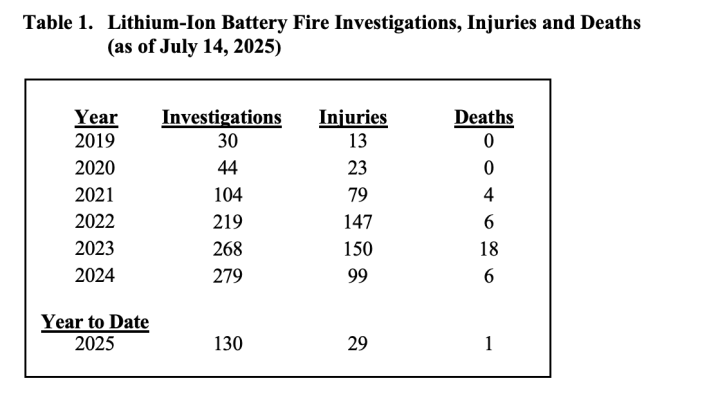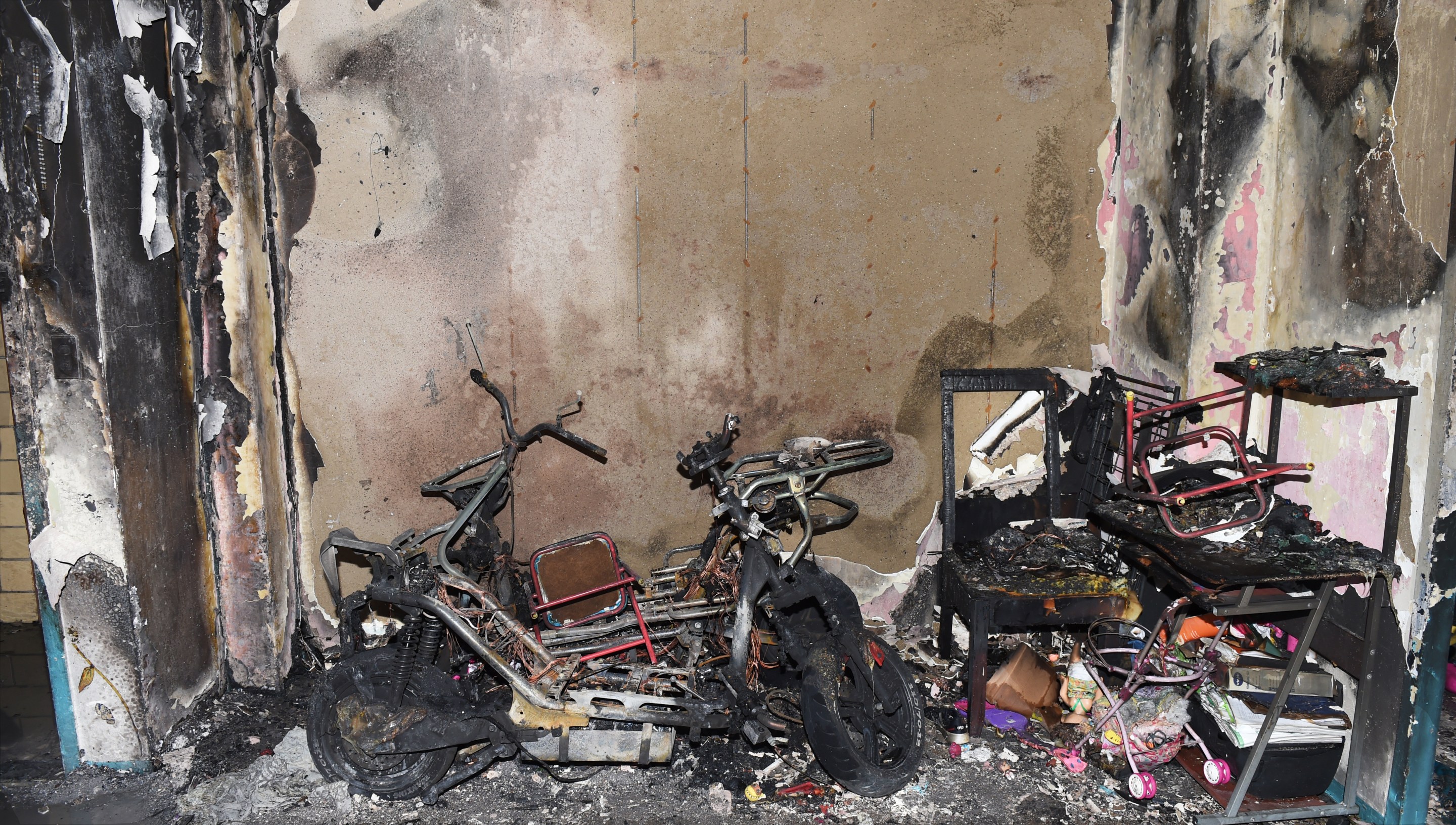The Adams administration wants the power to seize uncertified e-bike batteries, after the city has largely failed to thwart the number of structural fires caused by them — throwing into confusion the fates of delivery workers who are still using the banned batteries in the absence of broad measures to provide them with new equipment.
Under city law, the lithium-ion batteries that power many e-bikes and other electric mobility devices can't be sold in the five boroughs unless they are certified by UL-Solutions, the gold standard in safe battery policy.
But now, the Fire Department is proposing a rule change that would allow the city to confiscate any uncertified batteries in order to "address the fire and explosion hazard posed by uncertified ... batteries” that are still being used years after the sale ban went into effect.
The administration has declined to clarify which agency would be tasked with enforcing the new rule, and how that enforcement would be carried out. When asked for comment, FDNY told Streetsblog to reach out to the mayor’s press office, which did not respond to repeated requests for comment and explanation.
The problem persists
The city has passed legislation to respond to the increase in battery fires, but the problem persists (though deaths and injuries are down).

In 2023, when most batteries purchased in 2020 and 2021 began to reach the end of their usable life, there were 268 known lithium-ion battery fires which caused 150 injuries and 18 deaths. Now in 2025, there have already been 130 fires, 29 injuries, and one death allegedly caused by these batteries.
The increase in fires in 2022 and 2023 prompted a wave of reactive legislation and action from the administration. Council Member Gale Brewer (D-Upper West Side) passed the law that banned uncertified batteries at the point of sale, the FDNY created its E-Safety Task Force, and the mayor put out a report entitled “Charge Safe Ride Safe: Electric Micromobility Action Plan.”
But the report concluded that a number of factors puts New York at high risk for these fires: A delivery industry where low-wage workers are buying cheap equipment without the help of the companies they work for, apartment living where multiple people share small dwelling spaces, and the slow learning curve for safe use of the highly flammable batteries.
There have been efforts to curb the use of uncertified batteries in the delivery industry. The Department of Transportation launched its first e-bike and battery trade-in program and has announced plans to allow private businesses to put charging cabinets on the sidewalk with expedited approval. But these programs have not affected a critical mass of workers.
Some industry leaders who have worked with the city on pilot programs for battery storage want to see the app companies do more.
“The FDNY shouldn’t be forced to keep ramping up laws just to protect public safety,” said Baruch Hertzfeld, who runs PopWheels, which offers battery swap subscriptions to delivery workers. “Every uninspected battery still being charged in apartments is a public safety hazard — dangerous for riders, their families, firefighters, and their neighbors. Meanwhile, the delivery apps have put their money into lobbying for mayoral vetoes instead of doing the bare minimum to protect their workers.”
And the fire problem is persisting.
The first and only deadly fire of this year due to an e-bike battery took the life of a 76-year old grandmother. When she went to use the bathroom at a pizza restaurant in Flushing, an e-bike that was charging in the doorway caught ablaze and trapped her.
On Aug. 17 the FDNY responded to a fire in Queens and found around 100 lithium-ion batteries burning in the home’s basement. Bikes and batteries were found in states of disrepair, signalling to authorities that a make-shift repair shop was being run out of the home. Then a week later there was another similar fire in the Bronx. The FDNY found multiple lithium-ion batteries and devices that were being worked on.
Who is responsible?
The Department of Consumer and Worker Protection, which was tasked with inspecting stores that sell e-bikes for compliance with Local Law 39 has ramped up enforcement.
Since the law went into effect in September of 2023, DCWP has conducted more than 850 inspections and issued more than 315 violations to local brick-and-mortar retailers – both independently and in conjunction with FDNY’s E-Safety Task Force – and issued 65 cease-and-desist letters and more than 60 violations to online retailers, the agency told Streetsblog. It has also padlocked three retailers for repeated noncompliance and settled with two others to ensure compliance.
It is unclear exactly how the rule change will coordinate with these efforts. The text of the proposed rule gives the city power to seize batteries that are “known or presumed to be uncertified,” vague language that leaves open the door for targeting of delivery workers who can't afford the more-expensive certified barriers.
Indeed, as the Adams administration acknowledged in its report, “Most delivery workers do not have the benefit of an employer relationship or a single restaurant that employs them. Rather, the apps that provide earnings opportunities to delivery workers treat them as independent contractors. As a result, workers typically must provide their own equipment."
A recent bill passed by the City Council was meant to force the app companies to provide safe e-bikes and batteries to their workers free of charge. But the version of Council Member Oswald Feliz's bill that passed, now Local Law 95, won’t affect the status quo.
The watered-down version allows the companies to get out of the requirement to provide bikes, and the requirement to verify workers are using safe equipment by funding e-bike trade-in programs or subsidizing membership in an electric bike-share or equipment service, which most of the major players already do.

“Delivery apps are not being conscious,” said Hertzfeld. “This is really their job – but now it’s costing the taxpayer.”
Streetsblog reached out to all of the major players in the delivery industry and heard back only from GrubHub and Uber, neither of which addressed the city battery rule change proposal.
Members of the public can submit comments You can submit comments to the Fire Department through the NYC rules website or on the “FDNY Rules” page of the Fire Department’s website.






